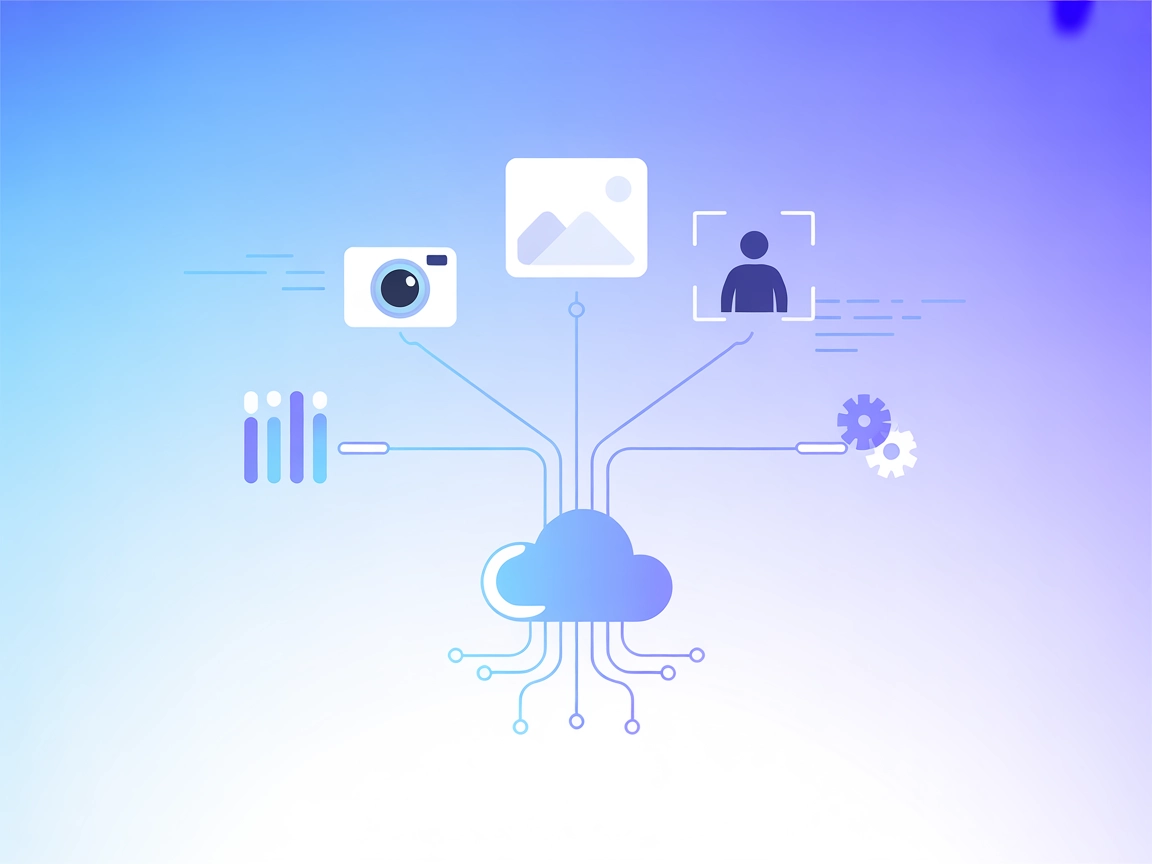
Model Context Protocol (MCP) Server
The Model Context Protocol (MCP) Server bridges AI assistants with external data sources, APIs, and services, enabling streamlined integration of complex workfl...

Integrate AI agents with DaVinci Resolve for automated editing, export management, and metadata extraction using the DaVinci Resolve MCP Server.
FlowHunt provides an additional security layer between your internal systems and AI tools, giving you granular control over which tools are accessible from your MCP servers. MCP servers hosted in our infrastructure can be seamlessly integrated with FlowHunt's chatbot as well as popular AI platforms like ChatGPT, Claude, and various AI editors.
The DaVinci Resolve MCP Server is an integration tool designed to bridge AI assistants and the DaVinci Resolve video editing software via the Model Context Protocol (MCP). By acting as a middleware server, it enables automated, AI-driven interactions with DaVinci Resolve, such as controlling editing actions, querying project information, or triggering exports. This empowers developers and creators to build intelligent workflows that can leverage DaVinci Resolve’s powerful editing capabilities through programmatic access, enhancing productivity, automating repetitive tasks, and integrating with broader AI-powered pipelines for content creation and management.
No information about prompt templates could be found in the repository.
No explicit resource definitions were found in the repository or documentation.
No clear tool definitions are present in resolve_mcp_server.py or elsewhere in the repository.
git clone https://github.com/samuelgursky/davinci-resolve-mcp.gitpip install -r requirements.txtwindsurf.config.json:{
"mcpServers": {
"davinci-resolve": {
"command": "python",
"args": ["resolve_mcp_server.py"]
}
}
}
{
"mcpServers": {
"davinci-resolve": {
"command": "python",
"args": ["resolve_mcp_server.py"]
}
}
}
{
"mcpServers": {
"davinci-resolve": {
"command": "python",
"args": ["resolve_mcp_server.py"]
}
}
}
{
"mcpServers": {
"davinci-resolve": {
"command": "python",
"args": ["resolve_mcp_server.py"]
}
}
}
For any sensitive environment variables (e.g., API keys), use the env and inputs keys in your configuration as follows:
{
"mcpServers": {
"davinci-resolve": {
"command": "python",
"args": ["resolve_mcp_server.py"],
"env": {
"API_KEY": "${API_KEY}"
},
"inputs": {
"api_key": "${API_KEY}"
}
}
}
}
Using MCP in FlowHunt
To integrate MCP servers into your FlowHunt workflow, start by adding the MCP component to your flow and connecting it to your AI agent:

Click on the MCP component to open the configuration panel. In the system MCP configuration section, insert your MCP server details using this JSON format:
{
"davinci-resolve": {
"transport": "streamable_http",
"url": "https://yourmcpserver.example/pathtothemcp/url"
}
}
Once configured, the AI agent is now able to use this MCP as a tool with access to all its functions and capabilities. Remember to change “davinci-resolve” to whatever the actual name of your MCP server is and replace the URL with your own MCP server URL.
| Section | Availability | Details/Notes |
|---|---|---|
| Overview | ✅ | |
| List of Prompts | ⛔ | Not specified |
| List of Resources | ⛔ | Not specified |
| List of Tools | ⛔ | Not specified |
| Securing API Keys | ✅ | Example given |
| Sampling Support (less important in evaluation) | ⛔ | Not mentioned |
Roots support: ⛔ Not mentioned
Sampling support: ⛔ Not mentioned
Based on the available information and the completeness of the documentation, I would rate this MCP server a 4 out of 10. While setup instructions are clear and use cases are described, the lack of documented resources, tools, and prompts limits its practical utility for developers seeking a plug-and-play experience.
| Has a LICENSE | ✅ (MIT) |
|---|---|
| Has at least one tool | ⛔ |
| Number of Forks | 18 |
| Number of Stars | 217 |
It is an integration server that connects AI assistants and DaVinci Resolve, enabling programmatic control over video editing, export, and metadata extraction through the Model Context Protocol (MCP).
Automated video editing, project metadata extraction, batch export automation, remote collaboration, and custom workflow integration with DaVinci Resolve.
No, the server currently does not provide prompt templates or explicit resource/tool definitions.
Use environment variables and reference them in your MCP configuration using the 'env' and 'inputs' fields.
Add the MCP component to your FlowHunt flow, configure it with the server JSON (using your server's URL), and your AI agent will gain access to all the MCP server's capabilities.
Boost your productivity by connecting AI agents to DaVinci Resolve. Automate video editing tasks, exports, and more with FlowHunt’s MCP integration.

The Model Context Protocol (MCP) Server bridges AI assistants with external data sources, APIs, and services, enabling streamlined integration of complex workfl...

The Aiven MCP Server connects FlowHunt AI agents with Aiven's managed cloud services, enabling automated project discovery, service inventory, and real-time clo...

The OpenCV MCP Server bridges OpenCV’s powerful image and video processing tools with AI assistants and developer platforms via the Model Context Protocol (MCP)...
Cookie Consent
We use cookies to enhance your browsing experience and analyze our traffic. See our privacy policy.